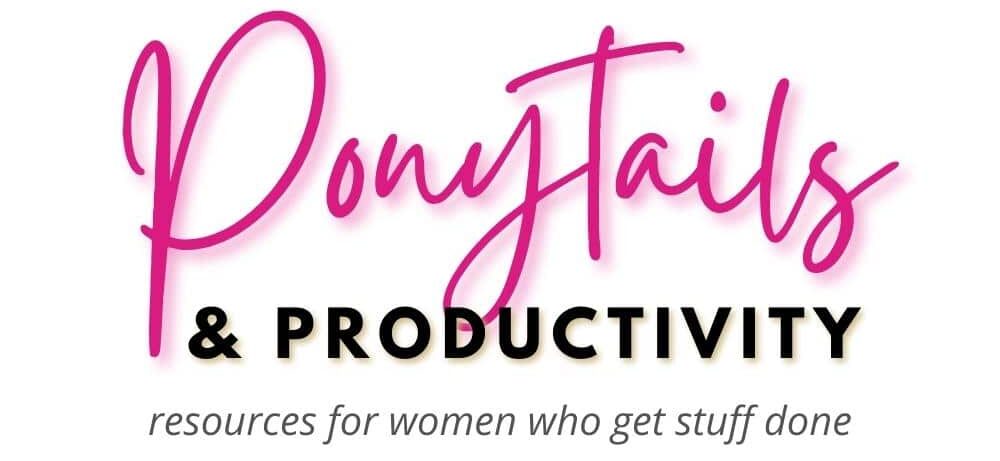Process Goals – What They Are, And Why They’re Crucial
Process goals – it’s a term you may not have heard before, but every successful person uses them.
Whether you’re consciously setting them or not, process goals are a type of goal setting that veers slightly away from traditional goal-setting advice – for big results.
These unassuming goals cement themselves into your lifestyle, and turn achieving your dreams from “if” to “when”.
Interest piqued? Let’s talk about this.
What are Process Goals?
Process goals, put in the most simple way, are goals that focus on your process and not your end result.
Typically we tend to think of goals as objectives-based. An objectives-based goal is focused on the end result you want to achieve – write your book, buy a house, get a million social media followers.
These types of goals focus entirely on the end result we want to achieve.
Process goals are different in that they don’t focus on the objective itself, but instead the process used to get there.
“Write a book” is a traditional, objectives-based goal. A process goal would look more like, “Write 1000 words a day”.
“But…. what I actually want is to write a book. Why can’t I have that as my goal?”
[cboxarea id=”cbox-F7CUBIpvMpO5iwiT”]
Why You Should Make the Switch
Maybe this sounds meaningless to you. After all, if what you’re after is that objective, then setting a goal where the objective is an afterthought or a side effect seems kind of crazy.
But hear me out. There’s a few good reasons why reframing – or rewriting – your goals as process goals is something you should take seriously.
1. Objectives are out of your control
Objective-based goals are important because they keep us striving for the end result. They give us something to look toward, and the motivation to keep going.
But largely, those objectives can be influenced by things that are completely out of your control.
Let’s say your objective is to lose exactly 20 pounds by January. You can do everything right – stick to your meal plan, go running three times a week, join the gym, cut out processed sugars – and, on paper, that will be enough to lose that 20 pounds by the date you’ve set.
But sometimes there’s no accounting for how your body will respond to those changes. Many people on a fitness journey reach a “plateau” – a point where their metabolism adjusts to the new normal and stops losing weight. In a lot of cases, it’s impossible to predict when or if you’ll hit a plateau, and getting off of one can be frustrating.
Or if your goal is to write a book, but two thirds of the way through your first draft you realize you’ve left yourself a massive plot hole and you don’t know how to fix it. You have to go back to the brainstorming stage and figure out how you’re going to solve this massive problem – and in doing so, you’re adding a huge amount of work to your editing stage.
Because goals are typically time-oriented, these setbacks often mean that you don’t finish your book by the date you had set, or lose the weight in the amount of time you were hoping for. This can feel like failure, even if you’ve done everything right. Your ego takes a hit, and this is a point where most people struggle with wanting to give up altogether.
Related post: How to Learn From a Failed Goal
Your process is IN your control
Because your process for writing your book approaches time a different way, obstacles and roadblocks and setbacks don’t affect your goal performance at all.
You can hit a plateau on your fitness journey – but your process goal is to eat well and get enough exercise, and that’s what you’re doing.
Massive plot hole in your first draft? Just keep writing. Work on edits. Those things are the goal you’ve set yourself, so coming up on problems isn’t at all a measure of your success – they’re an expected part of your journey. They certainly don’t define you, and they don’t hold you back. If the goal is to write (or edit) your book every day, then that’s what you keep doing.
A process goal still has an objective, but the objective is your performance, not your end product.

2. Processes set a pattern of success
With process goals, you’re not just aiming to achieve this one thing and then you’re done. Process goals are about forming the habits you need to be successful in your chosen area.
You can lose weight, but if you go back to your old lifestyle once you do, the weight will come back too.
You can gain a million YouTube subscribers, but if you’re not nurturing your channel, they won’t watch.
Likewise, you can write your book, but do you really only want to write one and then never write again? Do you really only have one story to tell?
People tend to think that accomplishing this one big thing will naturally lead you into accomplishing other big things, as though once you hit a peak you never have to climb again. But logically, you know that’s not true! There will always be more goals to reach, there will always be more mountains to climb.
Building lifelong habits will have you continue to climb those mountains long after the first one is behind you. Process goals are how you do that.
3. Your Goals Are Emotional (and you don’t want what you think you do)
Think for a second about what you want. What you really want. Why do you want it?
For a lot of us, it’s because we think that thing will make us happy. When you have no money, you think that money will make you happy. When you hate your job, you think having a better job will make you happy. And tons of companies make tons of money off of the premise that if you’re overweight, you just have to lose X amount of pounds and you’ll be happy – forever.
But happiness isn’t a side effect of accomplishing any one thing or becoming any one kind of person.
When you blame your unhappiness on a single source – your money, your job, your weight – it’s very easy to get motivated to change those things and set big goals. But what happens when you achieve that goal and the rest of your life doesn’t magically fall in line?
That’s a recipe for disaster. Think of it this way: If you pour all of your energy into the idea that once you’re making, say, $80,000 a year, you’ll finally be free from stress and be able to relax, what happens if you hit that number and the stress doesn’t just go away?
Don’t give in to the temptation to decide in advance how you’re going to feel at a certain point in time in the future – that’s futile. You can’t assign yourself happiness – and if you could, would you really wait that long for it?
Process goals leave room for you to cultivate your own happiness – apart from arbitrary objectives
When you set an ongoing goal for daily progress, there’s no one point in time where you’re complete. This overrides the temptation to assign an emotional impact in advance.
As James Clear writes in his book Atomic Habits: When you fall in love with the process rather than the product, you don’t have to wait to give yourself permission to be happy. You can be satisfied anytime your system is running.
With an ongoing goal, every day you do the work, you’ve hit your goal. If accomplishing goals ticks all your boxes, then well, you’re in for a treat, because you do that every day!
This is why I teach to always break your goals down into steps or milestones, then into each individual task that goes into reaching those steps. When you have daily goal work in front of you, every day is a day you make progress on your goal.
In the end, it’s a lifestyle you want for yourself – and while you can absolutely bask in the satisfaction and happiness that comes from finally hitting a big goal, there’s no reason you can’t start celebrating yourself today.
Process Goals – What They Are, And Why They’re Crucial
Looking for some more info on goal setting?
Check out these posts:
- Simple Steps to Reverse Engineer Any Goal
- Why is it Important to Set Realistic Goals?
- Why is Setting Goals Important?
- The Secrets of People Who Always Hit Their Goals
Check out our eBook/Audiobook on getting goal setting done in 10 easy steps:
Pin it on Pinterest:









